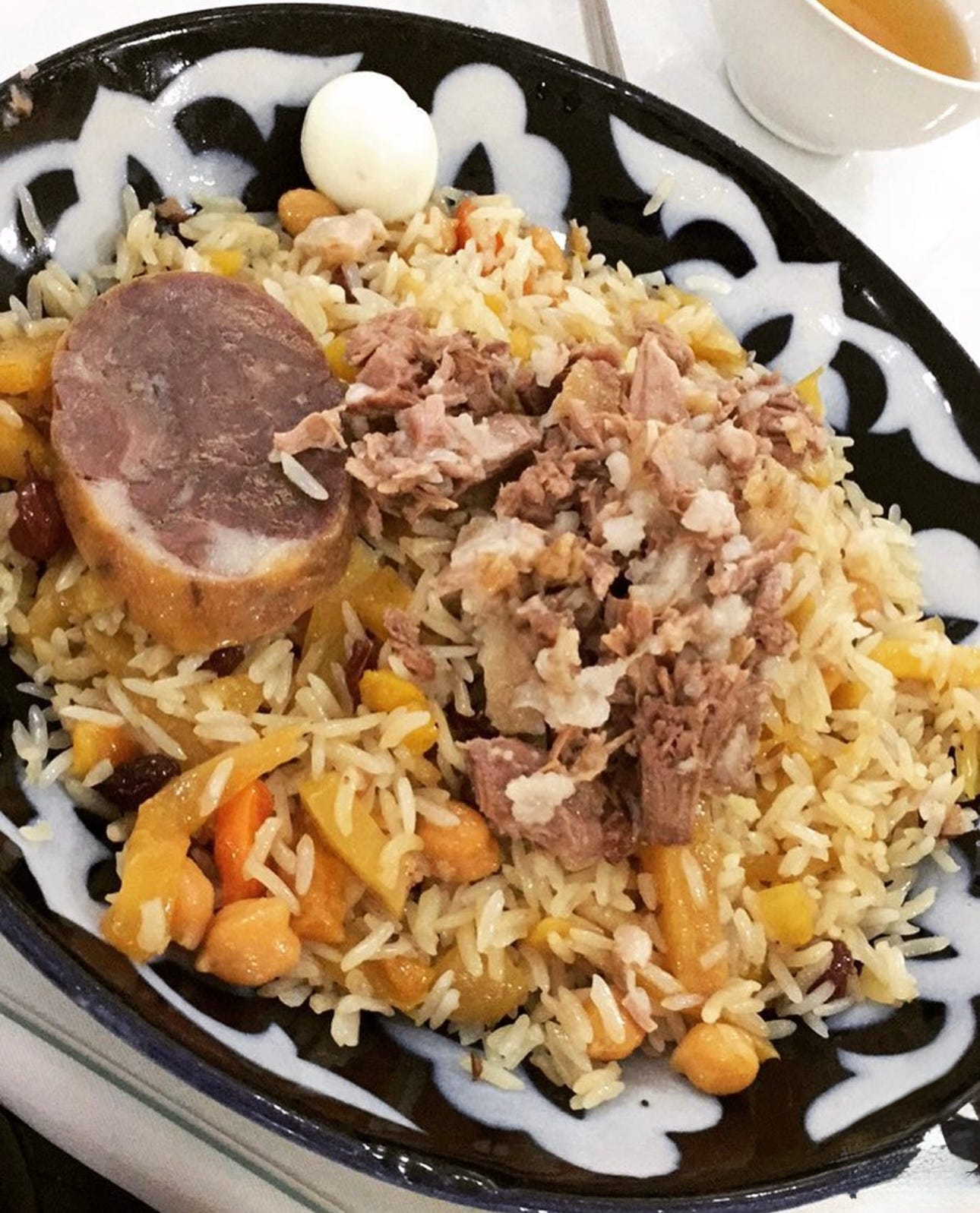Plov is an incredible Uzbek dish that I had the pleasure of savouring in a cosy restaurant in Bukhara earlier this year. Of course, in India, we are all familiar with the Pulao but they are not quite the same thing. In a traditional Uzbek establishmenrt, the enticing aroma of saffron, cumin, and coriander fills the air, creating an atmosphere that sets the stage for a culinary adventure. As I settled into my colourful Suzana-covered floor seat, I knew that I was in for a delightful treat.
Pulav, or Plov as the Uzbeks call it, is more than just a dish; it’s a national obsession. This hearty, flavorful rice pilaf is a staple at every gathering, celebration, and even everyday meals at home. It’s made with a generous helping of rice, tender chunks of meat (usually beef or mutton), and a medley of vegetables like carrots, onions, and sometimes chickpeas or raisins.
Plov is a masterclass in simplicity and flavour. As I waited patiently for my Plov to arrive, I sipped on a refreshing cup of green tea and watched the bustling kitchen. The chef, a friendly man with a bushy moustache, expertly juggled multiple pots and pans, his hands moving with the grace of a conductor leading an orchestra. When my Pulav finally arrived, it was presented in a magnificent, towering mound on a large platter, adorned with fresh herbs and a sprinkle of barberries. The first bite was like a symphony of flavours exploding in my mouth.
The fluffy rice was cooked to perfection, absorbing just the right amount of oil and spices. The chunks of beef were tender and flavorful, and the carrots added a delightful pop of sweetness. Each grain of rice was coated in a subtle blend of spices, with the cumin and coriander providing a warm, earthy undertone. As I savoured each bite, I couldn’t help but notice the lively atmosphere around me. Families with young children, groups of friends, and even couples on dates were all enjoying their Plovwith great enthusiasm.
Plov, a dish that brings people together, creates a sense of community and belonging. Everyone chats, laughs, and enjoys the food, their faces lit up with each bite. Eating Plov in a typical Uzbek place is more than just the food; it’s about the hospitality, warmth, and welcome. Uzbeks take pride in their cuisine, and every dish is served with generous hospitality.
As I finished my meal, the chef patted me on the back and asked if I enjoyed it. When I said “Yes, very tasty!”, he was proud and offered me a free dessert – a sweet, sticky pastry filled with cardamom goodness. As I left the restaurant, I felt grateful for the experience. In Uzbekistan, food is not just about eating; it’s a way of life, a reflection of the country’s rich history, cultural heritage, and warm hospitality. And Plov, with its rich flavours and aromas, is the perfect ambassador of Uzbek cuisine, inviting everyone to join in the feast and experience the joy of sharing a meal with strangers who quickly become friends.




Beautifully expressed Shantanu. I share your feelings for Pulov. Allow me to add an interesting fact that as a part of marriage celebrations, the men are invited for a Pulov party in the morning. They gather early morning in some marriage hall and savour the pulao for breakfast. Only menfolk are invited for this event surprisingly.